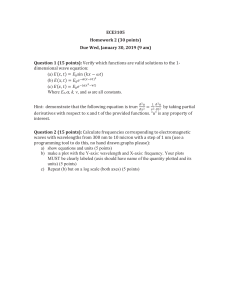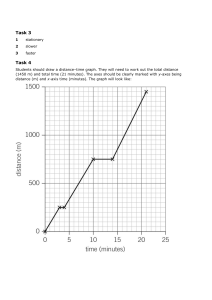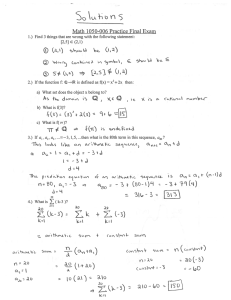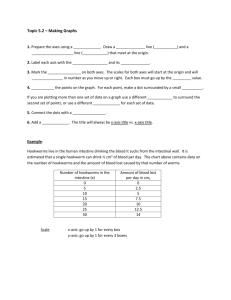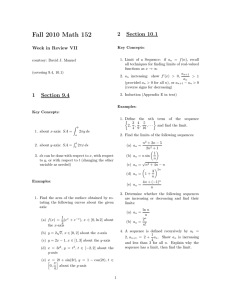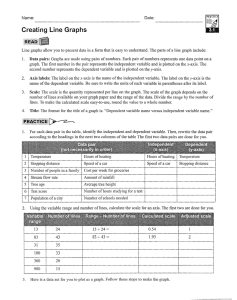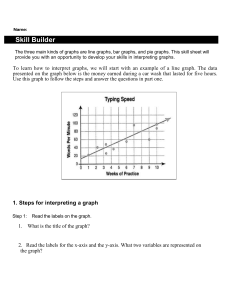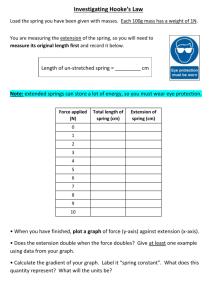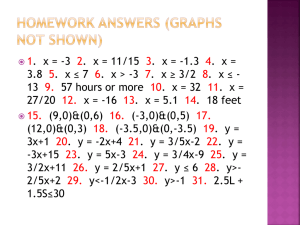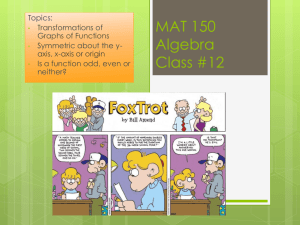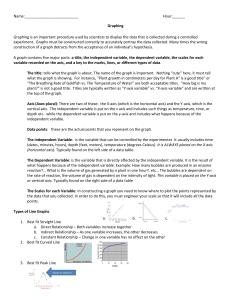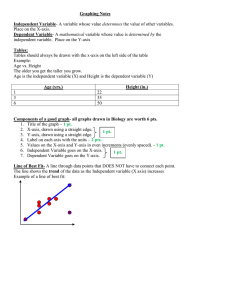PowerPoint
advertisement
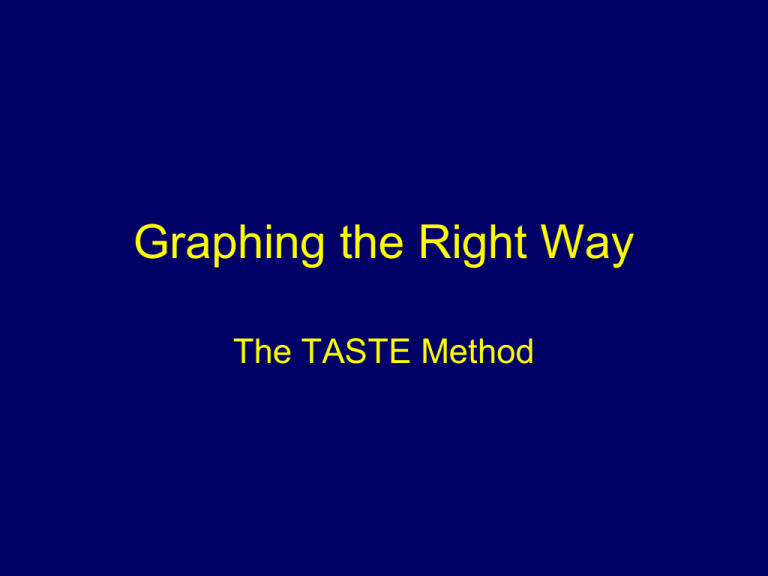
Graphing the Right Way The TASTE Method Let’s Take a Look at a Graph. • We might need some more information here! Let’s Add the Key (Legend)! • What does this tell us? • Can we make any conclusions? Maybe a Title Will Help… • Not really specific… • Do we know any more than we did before? Now Let’s Add Some Scales! • What do you notice about the DIFFERENCES between the numbers? • What do you notice about the SPACES between the numbers? • Can we make any conclusions yet? What Do Those Numbers Mean? • Y-axis is… • X-axis is… • NOW we can make some conclusions! The TASTE Method of Graphing • • • • • T = Title A = Axes S = Scale T = Trends E = Explain/Predict Title • In science, we name a graph by the y-axis vs. the x-axis • What would the title of this graph be? Axes • The y-axis and x-axis need to be labeled with… – What they are measuring – Units in parentheses Scale • The number scales on the axes need to… – Start with zero unless you are told otherwise – Have equal intervals between the numbers • By 2’s, 5’s or 10’s is a good place to start – Have equal spaces between the numbers Some other things to remember • Time – Is ALWAYS on the x-axis! – Time is the measurement; days, hours, or minutes are the units! • Line Graphs—used to show changes over time or changes in related items – There needs to be a line – CONNECT THE DOTS! – Next year you will do a “line of best fit” • Bar Graphs—used when there are separate categories to be compared Trends • A trend is a general statement about what is happening in the graph. • As vehicles get older, what happens to the number of problems? Explain/Predict • Make specific conclusions about the graph • Which make of car has the most problems? The fewest? • What will likely be the number of problems with Hyundais after 10 years? Put it all together… • T = Title • A = Axes • S = Scale • T = Trends • E = Explain/Predict • You will have all of the necessary tools to make and analyze a graph!
